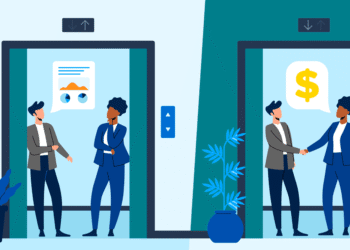The World Wide Web (WWW) is evolving from one form to another. There has been a recent buzz about Web3, or Web 3.0, when many people were unaware that Web 1 and Web 2 existed. This article addresses Web1, Web2, and Web3—their meanings, differences, and why they matter.
What is Web1
Web1, or Web 1.0, is the first generation of the World Wide Web. It was a group of static web pages that were accessed and looked at with a web browser. Most of the content on these websites was informational, with few ways for users to interact and get involved.
Web1 allowed publications like research papers, news articles, and online directories on the internet. Websites were mainly built using HTML, and there were no standardized protocols for exchanging data or communicating between websites. Most users accessed the internet through dial-up connections, which were slow and unreliable. This slow connection limited the amount of data that could be sent from one website to another.
Web1 was a big step forward in the development of the internet. However, it wasn’t very interactive, didn’t have many features, and didn’t give users a good experience. The emergence of Web2 built upon Web1’s foundation and expanded the possibilities of what could be done on the internet.
What is Web2
Web2, or Web 2.0, is the current generation of the World Wide Web that we use today. It’s about how the internet has changed from a bunch of static web pages to a more dynamic and interactive place to be online. Web2 added new technologies and features that made it easier for people to work together and share on the web. This participation and collaboration include social networking, blogging, and content-sharing platforms.
The second generation of the Web also brought up the idea of user-generated content and the rise of social media platforms. These platforms enabled people to connect with each other. People could share information and ideas and create and consume content in a more interactive and engaging way.
Web2, however, is still based on a centralized architecture. This means that most of our digital lives are controlled by a few dominant corporations, like Google, Facebook, and Amazon. This centralization has led to concerns about privacy, security, and data ownership. Web3 wants to solve these problems by making the internet more secure, open, and user-controlled. Blockchain, peer-to-peer networking, and other decentralized technologies are making an impact in Web 3.
What is Web3
Web3, also called Web 3.0, is the next version of the World Wide Web. It is built to make the internet decentralized and trustless. It is a set of protocols and technologies that use blockchain and other decentralized technologies. This makes the internet safer, more open, and maybe easier to understand.
Web3 technology lets people own and control their own data and digital assets. This makes it less important for banks, social media sites, and other centralized groups to act as middlemen. This is made possible through the use of decentralized applications (DApps), which are built on blockchain platforms such as Ethereum.
By using Web3, people can transact directly with each other without relying on centralized authorities to oversee and verify these transactions. This, therefore, creates a more open, democratic, and secure internet. So, with Web3, users have more control over their digital lives and can participate in a decentralized economy.
In summary, Web3 is a new and exciting technology that aims to make the internet more open and decentralized so that users have more control over their digital assets and data.
The importance of the different generation Web1, Web2, and Web3
The different generations of the World Wide Web have had a significant impact on the way we interact with and use the internet. Each generation has introduced new technologies and features. These have expanded the capabilities of the web and changed the way we live, work, and communicate.
Web1 was the first web version, and it was the first time information could be published and shared on the internet. It set the stage for future generations and made it possible for people to come up with new technologies and uses.
Web2 was a big step forward in the way the web has changed over time, and it added new interactive features and functions. It made it possible for people to share and work together on the web, and it brought about social media, user-generated content, and online communities.
Web3 is the next generation of the web, and its goal is to make the internet more user-controlled and less centralized. It uses blockchain technology and other decentralized technologies and aims to solve problems like privacy, security, and data ownership. Web3 promises to make the internet more open, safe, and democratic. It gives users more power, letting them take charge of their digital lives.
The importance of the different web generations lies in the opportunities and possibilities they create. Each generation has enabled new technologies, applications, and functionalities that have expanded the capabilities of the web and changed the way we live and work. The growth of the web has also led to the rise of new industries. So, industries like e-commerce, online advertising, and social media have given both businesses and individuals new opportunities.
Conclusion
The different generations of the World Wide Web—Web1, Web2, and Web3—come with different advancements. As the technologies advance, they also give the users more control over their use of the platforms and ownership of their data. Knowing the use cases of the different generations will give a hint as to the role individuals can play. The World Wide Web generations present definite changes to the technological space, from the job opportunities they provide to the self-development opportunities they provide.




